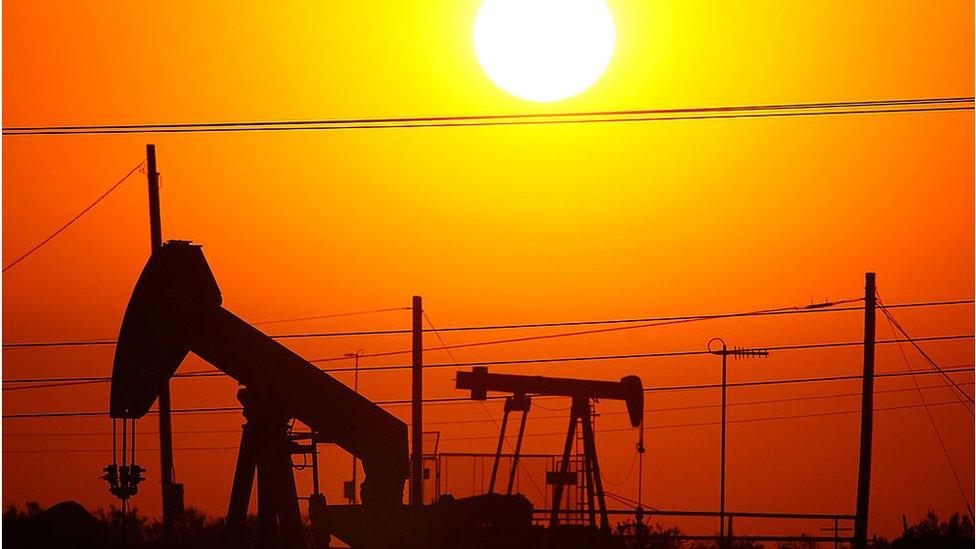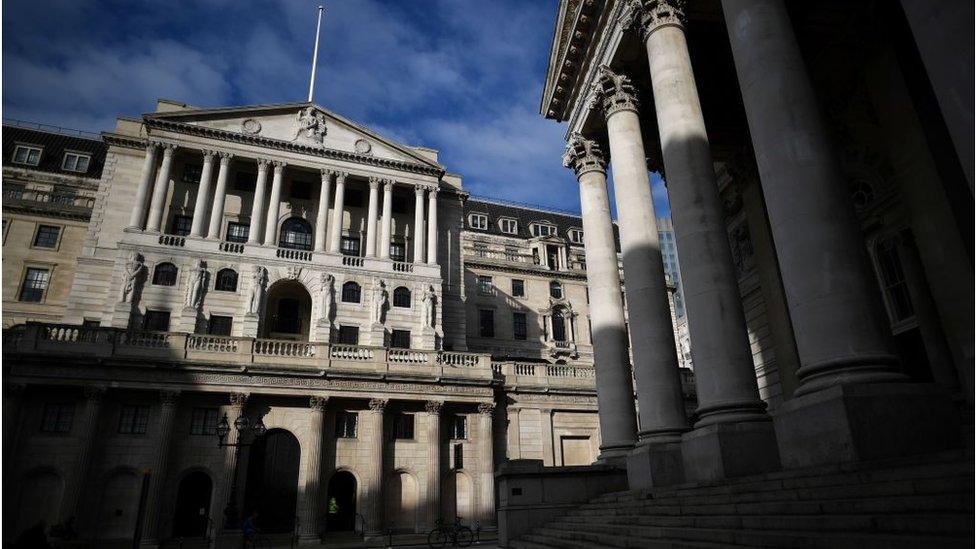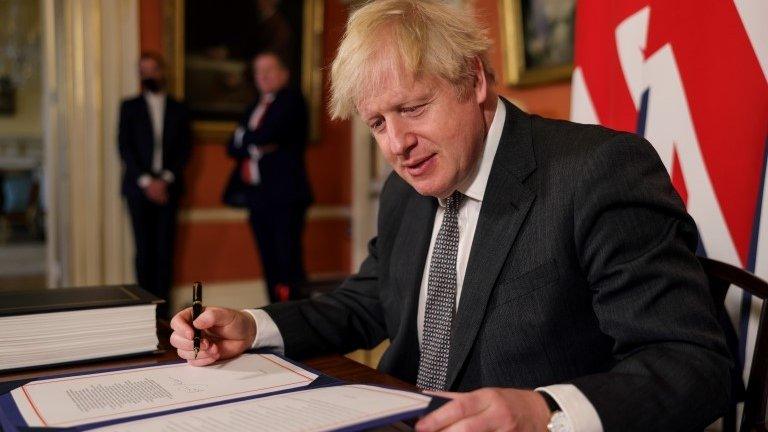Stampede from fossil fuels 'would cost UK jobs'
- Published
BlackRock boss: Fossil fuel investment 'not black and white'
Being green is not black and white.
That's according to the man who runs the world's biggest money management firm. BlackRock manages nearly $9tn (£6.6tn) of pension and investments.
This week the chief executive, Larry Fink, sent his annual letter to the bosses of the companies around the world in which that colossal sum is invested.
He said the Covid-19 pandemic had focused minds on the fragility of the global economic system and made people think about a potentially bigger crisis.
"I believe that the pandemic has presented such an existential crisis - such a stark reminder of our fragility - that it has driven us to confront the global threat of climate change more forcefully and to consider how, like the pandemic, it will alter our lives," he said.
Job loss warning
When the boss of the world's biggest investor speaks, those company bosses listen. He wants them to explain how they are going to get to net zero over the coming decades.
But he also admitted that starving polluting companies of cash too quickly would mean dramatic job losses.
"If we all ran away from the hydrocarbons and everything, and if you ran away with most of those companies in the FTSE [100], the job loss in the United Kingdom would be extraordinary. Is that the outcome that they want?" he told the BBC.
The vast majority of his company's multi-trillion-dollar holdings are in so-called "passive" funds. They provide a way for investors to ride the ups and downs of stock markets without taking a view on individual companies by just taking a slice of all of those listed.
As a result, BlackRock has trillions invested in stock-market trackers that include some of the worst polluting companies in the world.
So will BlackRock dump shares in these companies?
"No, we're not saying that," Mr Fink says. "First of all none of it's our money. The entire pool of money that we manage, which at the present time is approximately $8.7tn, every dollar is somebody else's money."

Two-thirds of the investments are retirement money, he says.
"What we are doing is asking companies to move forward… We can sell those shares," he says.
"We're not going to sell assets in index funds… but we have the power of the vote on behalf of our investors… We can help companies move forward and that's what we try and do".
He conceded that his firm - and industry - probably has more power than environmental protesters.
"We are moving finance faster than any environmental group."
'Different route'
Many investors expected that the onset of the pandemic would push any other investor priorities - beyond survival - to the sidelines
When the pandemic hit, investors ran to the hills. They dumped their share holdings and turned them into cash. The Dow Jones index of the biggest companies in the US lost 10,000 points, or nearly a third, in a matter of days.
The stock market has rebounded as investors look hopefully to a post-pandemic world - their moods enhanced by enormous amounts of emergency financial drugs such as money printing, and massive government borrowing and spending.
But when the investors came out of the hills they came down a different route - investing in different companies from the ones they used to own. Larry Fink notes that investors pumped $288bn globally in sustainable assets, a 96% increase over the whole of 2019.
It has proved irresistible for governments around the world to promise they will "build back better" - it may also prove hard to resist the yearning to return to what we had before - and if cheap oil, for example, helps us do that, then so be it.
But when the man with the $9tn purse strings speaks directly to company chief executives, they tend to listen, and Larry Fink says the pandemic has kicked in a window that was already ajar.
- Published25 January 2021

- Published11 January 2021

